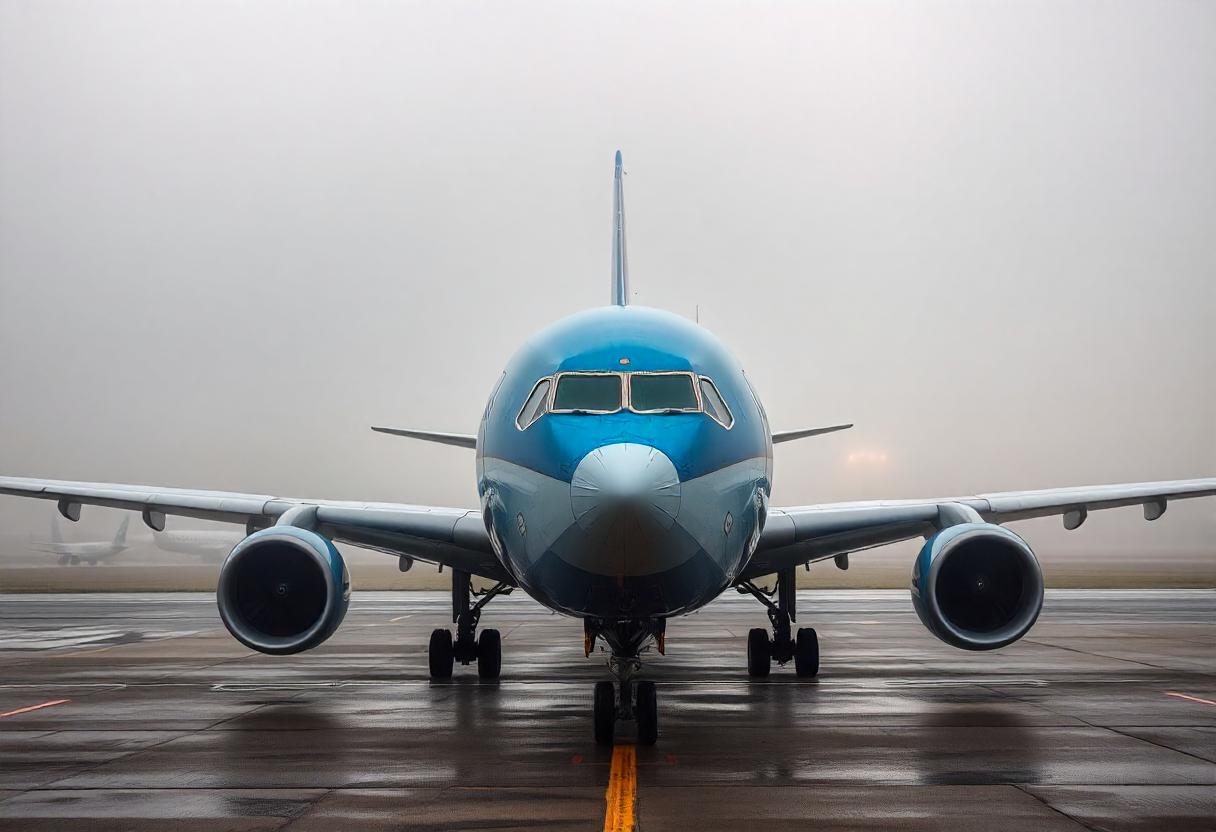World
Tui Airways cabin failed to pressurize after pilots missed error message, putting 193 passengers at risk of hypoxia: probe

A plane packed with 193 passengers was forced to make an emergency landing in England last year after the cabin failed to pressurize due to pilots overlooking key switches, according to an alarming new report.
Tui Airways flyers were put at risk of hypoxia — a lack of blood oxygen that can be life-threatening — after “bleed switches” were left off, preventing the cabin from pressurizing, according to the UK’s Air Accidents Investigation Branch investigation into the Oct. 17, 2023, incident.
The flight took off from Manchester Airport in the United Kingdom and was destined for the Greek island Kos — but didn’t get past Lincolnshire before being redirected back to Manchester.
With no technical issues after takeoff, the British carrier’s plane began its ascent — flying for 43 minutes with an emergency “CABIN ALTITUDE” warning flashing on the dashboard prior to any action being taken by the flight crew.
The pilots falsely claimed to investigators that they had flipped on the bleed switches “approximately 73 seconds” after first seeing the first warning sign, the AAIB report found.
They also neglected to institute proper protocols, which would have included donning oxygen masks.
Both engine bleed air systems — which regulate cabin pressure — had been inadvertently left off before departure, according to the agency.
When they realized the problem, the flight crew quickly turned on the bleed switches and attempted to continue their trip.
That’s when a “MASTER CAUTION” illuminated in the cockpit, and they were forced to redirect back home to Manchester, the AAIB said.
The report found that the bleed switches were inadvertently turned off due to maintenance before the flight.
Further, the cabin crew had opportunities to notice the switches were off but neglected to do so, the report revealed.
The pilot and co-pilot had been scheduled to make the flight with very short notice —- finding out at 1 a.m. and 3 a.m., respectively, and expected to report at 4:30 a.m., according to the AAIB.
The investigation found that the officers were technically “fatigued” and had been overworked in the period leading up to the flight but insisted that their tiredness was not a contributing factor to the malfunction.










